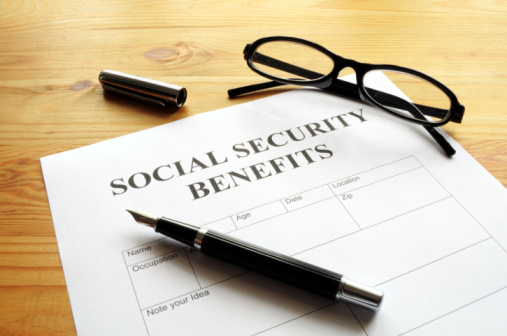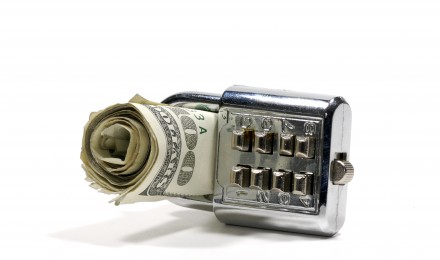Changes in Expectations for Social Security and Medicare
One of the benefits of living in a wealthy, industrialized country is feeling confident that you live in a society that will protect you when you are older and no longer able to work. However, recent discussions about the Social Security Insurance and Medicare systems suggest that some type of changes to these programs is inevitable. Younger people are realizing that there is a good chance Social Security may not be around in 40 years when they will be ready to retire. What are you to do if the money you are counting on after retirement is no longer available?
Confidence Dwindles
As the years have gone by, more and more American are less confident that they will receive Social Security and Medicare benefits when they finally become eligible. You may have these concerns yourself, and it makes sense that you would question why you pay so much in Social Security and Medicare taxes out of every paycheck if you won’t receive the benefits yourself. For example, according to a recent Sun Life survey, since September 2010, overall confidence levels of people expecting to receiving Social Security benefits and Medicare benefits have dropped from 22 percent to 9 percent and from 20 percent to 8 percent, respectively. In fact, in December 2008 up through September 2010, people were fairly confident that they would be able to afford basic living expenses in retirement. However, as of September 2011, the tables turned and 28 percent of people are not at all confident, compared to 23 percent of those who are.
Additionally, the survey shows that only 21 percent those between the ages of 18 and 24 are confident that they will be able to take care of living expenses when in retirement, compared to 30 percent of those between the ages of 47 and 66 and 32 percent of people between 25 and 46 years of age. Surprisingly, 47 percent of baby boomers, or those between age 47 and 66, feel confident that they will be able to afford medical expenses, compared to 31 percent of those between the ages of 18 and 46. In terms of living the type of life that retirees would like to have, the statistics were relatively equal, with an average of 45 percent confidence vote across the board.
Reasons for Concern
Due to the recent billion dollar bailouts for the auto industry, banking system, and mortgage finance giants Fannie Mae and Freddie Mac, the American debt load has reached a historical peak. Add that to the ongoing problems in the House and Senate with approving the federal budget, and it’s obvious you have reason for concern. It doesn’t take an economics major to figure out that the balloon on hopes for Social Security and medicare benefits is about to pop.
Governmental Alternatives
Some prominent politicians have recommended privatizing Social Security, letting you be the leader of your contributions. However, since your paycheck deductions go to pay the current recipients of Social Security, the government would have to maintain a large fund of current Social Security contributions in order to retain the payments for the current recipients.
Personal Alternatives
Whether you are 25 or 65, it’s never too early to start planning for your future. You have several options to protect yourself financially if Social Security benefits are not available when you reach retirement. Start piling away as much dough as possible in your 401k or IRA. Your employer’s contribution to your 401k is basically free money, so take advantage. You can also allocate some pre-tax funds to your flex budget to plan for annual medical bills.
Changes in Expectations for Social Security and Medicare
One of the benefits of living in a wealthy, industrialized country is feeling confident that you live in a society that will protect you when you are older and no longer able to work. However, recent discussions about the Social Security Insurance and Medicare systems suggest that some type of changes to these programs is inevitable. Younger people are realizing that there is a good chance Social Security may not be around in 40 years when they will be ready to retire. What are you to do if the money you are counting on after retirement is no longer available?
Confidence Dwindles
As the years have gone by, more and more American are less confident that they will receive Social Security and Medicare benefits when they finally become eligible. You may have these concerns yourself, and it makes sense that you would question why you pay so much in Social Security and Medicare taxes out of every paycheck if you won’t receive the benefits yourself. For example, according to a recent Sun Life survey, since September 2010, overall confidence levels of people expecting to receiving Social Security benefits and Medicare benefits have dropped from 22 percent to 9 percent and from 20 percent to 8 percent, respectively. In fact, in December 2008 up through September 2010, people were fairly confident that they would be able to afford basic living expenses in retirement. However, as of September 2011, the tables turned and 28 percent of people are not at all confident, compared to 23 percent of those who are.
Additionally, the survey shows that only 21 percent those between the ages of 18 and 24 are confident that they will be able to take care of living expenses when in retirement, compared to 30 percent of those between the ages of 47 and 66 and 32 percent of people between 25 and 46 years of age. Surprisingly, 47 percent of baby boomers, or those between age 47 and 66, feel confident that they will be able to afford medical expenses, compared to 31 percent of those between the ages of 18 and 46. In terms of living the type of life that retirees would like to have, the statistics were relatively equal, with an average of 45 percent confidence vote across the board.
Reasons for Concern
Due to the recent billion dollar bailouts for the auto industry, banking system, and mortgage finance giants Fannie Mae and Freddie Mac, the American debt load has reached a historical peak. Add that to the ongoing problems in the House and Senate with approving the federal budget, and it’s obvious you have reason for concern. It doesn’t take an economics major to figure out that the balloon on hopes for Social Security and medicare benefits is about to pop.
Governmental Alternatives
Some prominent politicians have recommended privatizing Social Security, letting you be the leader of your contributions. However, since your paycheck deductions go to pay the current recipients of Social Security, the government would have to maintain a large fund of current Social Security contributions in order to retain the payments for the current recipients.
Personal Alternatives
Whether you are 25 or 65, it’s never too early to start planning for your future. You have several options to protect yourself financially if Social Security benefits are not available when you reach retirement. Start piling away as much dough as possible in your 401k or IRA. Your employer’s contribution to your 401k is basically free money, so take advantage. You can also allocate some pre-tax funds to your flex budget to plan for annual medical bills.







